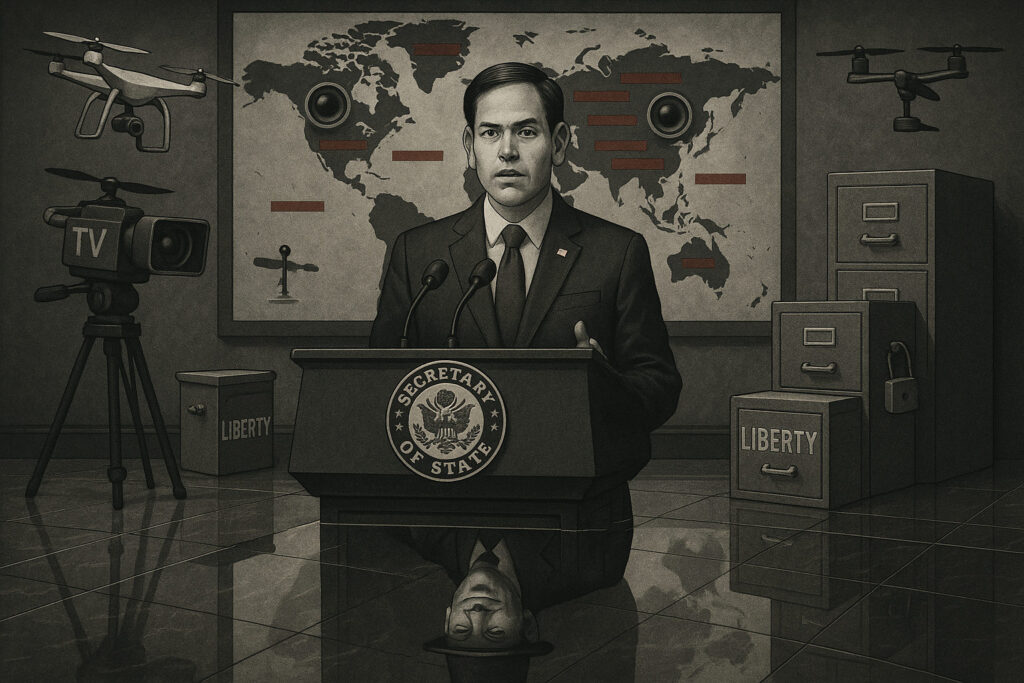 Marco Rubio didn’t vanish. He mutated.
Marco Rubio didn’t vanish. He mutated.
While the headlines were chasing louder names and louder crimes, Rubio was slipping through the side door of power with his tie straight and his tongue polished. Now he’s Secretary of State and Acting National Security Advisor. That means he’s not just in the room—he is the room, shaping the story America tells the world, and deciding who gets crushed behind the curtain.
This isn’t a comeback story. It’s a shell game. The man who once rode the Tea Party wave, then shrank beneath Trump’s shadow, has now rebranded as the adult in the room. Don’t buy it. Behind the clean speeches and policy briefings is the same cold-blooded opportunist who traded principle for placement every chance he got.
He’s using the State Department like a toolbelt: cutting staff, consolidating control, and pushing “efficiency” while placing loyalists into key roles. Abroad, he’s selling the old Cold War fear package—China this, Russia that—but now with a new twist: human rights as a weapon. He’s issuing visa bans to “foreign censors,” using America’s wounded notion of free speech as a branding exercise while ignoring the domestic gag orders creeping into his own country.
That’s the con: Rubio positions himself as a defender of liberty, while helping build the infrastructure that silences it.
He talks like a moderate, but acts like a technocrat with a God complex—managing narratives, sanctioning dissent, and making sure the machinery keeps running clean while grinding bones underneath.
Rubio isn’t leading a restoration. He’s executing a refinement. He’s the quiet face of a regime that learned from Trump not to shout—but to smile, reorganize, and make authoritarianism look like diplomacy.
This is the new model: no red hats, no chants, no mobs. Just well-dressed men with titles, rewriting freedom into a trademark.
And Marco Rubio is the prototype.

